The two people Amanda Baxley loves the most begged her not to be tested — at least not now. “Please,” her mother pleaded. “Your dad is so sick. We are hurting so much already.” Her boyfriend implored her not to invite news that could cast such a long and dark shadow over their future. “You don’t know what it will do to you,” he warned.
But she had always been so stubborn, so sure of what she wanted, so able to push past trepidation. And she was driven by the impossible expectations of what this day would bring; she had to know her future in order to control it. If she had the mutated gene — a forecast of a horrifying and fatal illness, one without treatment or cure, passed down in her family from generation to generation — she vowed it would stop with her. So today, with her mother and boyfriend beside her for support, Amanda sits across from her therapist. At 26 years old, she is facing a dilemma that seems to reach beyond her young adulthood, into the ageless realm of the surreal. Which life will it be? The one in which the years stretch outward boundlessly or the one where the future twists into a discernible, ghastly shape?
Amanda’s fate resides in the result of a blood test. It will reveal whether she possesses a single mutated gene, one that has contorted the fates of so many of her family members. The results are with a doctor in California, who’d ordered the test. In a few minutes the phone will ring and that doctor, on the other side of the country, will open the envelope and tell her, over speakerphone, the fateful news.
This is the story of an almost archetypal family in a small town in South Carolina faced with a medical mystery they were determined to solve. Without warning, the Baxley family was thrust into a harrowing medical dilemma. One by one, various members of the family were struck with an inscrutable disease. The disease ultimately rendered its victims unable to talk or to swallow without choking. And it always ended in death.
The phone rings. The California doctor is on the line. “Are you ready, Amanda?” her therapist asks.
» Read more of our Personal Journeys
Tim Baxley never even got the name of the woman who told him the story that set the horror in motion. It was a June evening in 1998 and Tim was at the end of the receiving line at a viewing the night before a funeral — his father’s funeral.
Tim’s father, Bill Baxley, had been a chemical engineer at a local packaging plant. Tall and imposing, with a stern and serious face, he had been a deacon in his church and head of the Sunday school program.
The Baxley family had lived in or near Hartsville, South Carolina, for generations. A town that, with its suburbs, comprises 21,000 people and 16 churches — eight of which are Baptist. It is a deeply Christian population in the heart of the Bible Belt.
The lure of the town, its magnetic appeal for the Baxley family and many others, is its sense of community. Residents cherish family life — restaurants close on Sunday nights so employees can eat dinner at home with their families. High school sports make front-page news in the town’s paper. The church basketball teams take time-outs during the games for devotions. It is a place of conservative tradition, of exacting conformity, stifling to some but a comfort to those who have come to feel that Hartsville is their true home.
Bill Baxley proudly fit in. So staunch a patriarch and so perfect a picture of traditional southern living was he that, in 1985, he was awarded a plaque from Gov. Richard Riley naming his clan South Carolina Family of the Year “in recognition of the exemplary qualities of family life exhibited by the William H. Baxley Jr. family.”
It was a confirmation of Bill’s belief, shared by his family, that the Baxley clan was special, maybe even indestructible — certainly a testament to the grace conferred by faith, discipline and hard work. Even Bill’s viewing at the funeral home seemed to confirm this belief.
Tim knew the respect his father commanded, yet he was still astonished by the size of the crowd that night. The viewing was supposed to start at 6 p.m. and end at 8, but people lined up outside the door at 5:45. The last did not leave until 10. Hundreds arrived — more than the funeral director had ever seen — a steady stream of people coming despite the thick heat of that June evening.
The Baxley men were readily identified by strong, dark brows shading large, dark eyes, a head of thick chestnut hair, a narrow oval face and a straight, angular nose. They all had a sensuously full upper lip with a pronounced Cupid’s bow. From generation to generation, the Baxley boys looked so similar that it was difficult at times to tell them apart.
But this man in the casket — this man looked nothing like Bill Baxley. He was a stranger. A rippled sateen pillow tipped a shriveled face up to the line of passing mourners. Bill’s gray hair had been pulled back, the skin drawn tight against his forehead. Heavy makeup was smeared over the scar where his brain had been removed in a vain attempt to figure out the illness that had robbed him of his life. His favorite charcoal gray suit hung loose on his shrunken body; his red tie with a South Carolina emblem did nothing to draw the eye from the desolation of his body.
Tim was at the front of the receiving line, standing ahead of his older brothers, Billy, Mike, and Buddy. He glanced back at his mother — tiny, frail-looking Merle — who stood near the entrance to the room where her husband’s casket lay. Between greeting visitors, Tim observed his mother shake well-wishers’ hands and acknowledge their sympathy. She was bearing up better than he had dared to hope. He developed a kind of rhythm. He’d accept a “sorry for your loss” with a grateful smile and then turn his head to see his mother doing the same thing.
Soon, the motions became automatic. So he paid little notice to the plump gray-haired woman from the nearby town of Darlington when she made her way up to him, one of so many in that sea of mourners.
“I am so sorry for your loss.”
Now her eyes turned down, her smile faded slightly. She looked up at him again, holding his glance meaningfully.
“I remember his daddy walking through the plant. He had to hang on to the machines.”
This seemingly innocuous comment was delivered so quietly that she had already moved on by the time Tim recognized its meaning.
Throughout his father’s illness — abrupt in its onset and unswerving in its course — Tim Baxley had sought answers from one doctor after another — general practitioners, pathologists, neurologists. And he’d never received one that satisfied him. His father, doctors said, suffered from a rare, anomalous disease, kind of a blend of Alzheimer’s and Parkinson’s, but his was a case like none any of them had ever seen or heard of before. And yet, suddenly, in the briefest of exchanges, this woman had conveyed that she had seen it before in his grandfather — a crucial detail Tim had never known. That loss of balance, it was one of the first signs, wasn’t it?
Standing there in the funeral home, Tim was barraged by memories and images, one after the other. His dad shuffling as he walked; soon the shuffling turned into stumbling and then sort of weaving, like he was drunk. The way his father careened through the living room, clutching at the wall for support, hanging on to chairs and sofas. And that was in the beginning, when things just seemed off, but nothing so strange that it could suggest a fatal problem.
Bill’s memory seemed to slip around this time as well. Tim had first noticed it 10 years earlier, in 1988, at Sunday dinner at his parents’ house. He had been looking for something in the basement when he came upon an object from his childhood. Bill had fought in the Pacific — but one of his friends, who had fought in Europe, had given him a compass that he had snagged from a German general. It had a steel case that opened to reveal the compass; on the other side, there was a little mirror with the initials of its owner etched on it.
Tim would often bring this to his father and ask him to talk about the war, to tell the story of his friend and how he came to get his hands on that compass. That night, Tim cradled the little compass in his hand, carrying it upstairs to the kitchen. He proudly showed it to his father. Like a small child, he wanted to hear his dad tell the story one more time. It had been years since he had asked him about it.
But when Bill looked down at what his son was holding, he seemed baffled and muttered that he had no idea what Tim was talking about. Tim reminded Bill that they’d looked at that compass many times over the years. No, Bill shot back, he didn’t remember any of that.
Tim sadly trudged back downstairs clutching the compass and replaced it on the shelf — it may still be there to this day. He was devastated.
Tim, who had followed Buddy by going to medical school and was now himself a doctor, was furious at what he saw as a major failing among those in his profession. Some doctors, he said to his brother Mike, retreated behind a wall of dispassion when confronted with difficult-to-diagnose patients like their dad; he’d seen this happen before with his professors in medical school and occasionally among colleagues.
The Baxley brothers — realizing they were likely not going to find a medical authority to guide them — felt compelled to do something, to find an answer. It was devastating to watch their father helplessly deteriorate with no authority figure in sight, no expert to guide them through these mystifying circumstances. The doctors who examined their father had only made his suffering worse with their breezy dismissal of his terrifying symptoms, with their clearly inaccurate diagnoses and lack of compassion.
Tim and Buddy — both medically trained themselves — decided they would have to take matters into their own hands.
The brothers devised a plan. They would get some of Bill’s tissue and have it analyzed — or at the very least store it in case it could help someday to solve the mystery.
But what tissue? Bill had a neurological disorder, that was clear, so perhaps the first thing to examine would be the fluid that bathed their father’s brain. There was a remote chance Bill had a condition called normal pressure hydrocephalus. If a doctor removes about a third of the fluid from a person’s spinal column, the person is temporarily able to walk normally again, instantly. It was certainly worth a try, they agreed.
The two brothers explained their plan to Bill, who nodded with a blank expression, unable to talk, unable to question his sons but trusting them implicitly. Tim and Buddy drove their father to Buddy’s office.
It felt strange — doctors do not treat their family members, doctors do not insert needles into their own fathers. But now it had become essential, they decided, that they be doctors first, sons second.
They dressed their father in a hospital gown then bent him over, baring his rounded back. Tim stared at the rail-like ribs protruding from his father’s sagging pale skin. His muscles were wasted; he looked like such an old man. He pushed these thoughts to the side, trying to be impartial, professional, trying to pretend the patient in front of him was not his father. He gave his father an extra dose of lidocaine, a numbing medication. Tim spoke to his father softly. “Dad, you are going to feel a little pressure in your back and maybe a tingle in your leg.” Then, gently he slid a long needle into his father’s spinal column. The fluid dripped out slowly, reminding Tim of what it must be like to tap a maple tree. Buddy left the room to care for other patients, and Bill, soothed by Tim’s gentle touch, fell asleep.
After nearly an hour, it was done. Tim had collected all he safely could — 40 milliliters of spinal fluid — filling four long tubes. “Dad, it’s time to wake up,” Tim murmured, lightly nudging his father. “Let’s see how you are doing.”
He and Buddy turned Bill on his side chatting with him while they waited the requisite half hour before sitting him up. The concern is that patients can get a headache if they sit up too soon after losing so much spinal fluid. Then they helped their father off the table. They were hoping for an instantaneous change when Bill woke up, a sudden ability to walk, the troubling symptoms vanished. Unlikely, yes, but possible.
As soon as they got their father off the table and onto his feet, however, Buddy and Tim knew they had failed. No change.
They did not let on their disappointment. “Let’s go home and get some lunch and we’ll see how you do,” Tim said to Bill.
Now, at least, the brothers had a sample of their father’s spinal fluid. Tim had held the tubes up to the light, looking for any discoloration, which could be a sign of rampant infection or inflammation or bleeding. Nothing. The liquid was as clear as pure spring water. But perhaps something in that fluid, some protein or chemical imbalance, might hold a clue to the disease. They were flummoxed about what the next step should be.
They didn’t even know what test to request if they were to send it to a lab for analysis. They would store the fluid until they had a better idea of how to use it. They carefully placed the tubes in a freezer in Buddy’s office.
Sometime later they had a new idea. Maybe, the brothers thought, Bill had a storage disease, a type of rare disorder caused when cells cannot rid themselves of certain substances — each disease involves a different substance. Like normal pressure hydrocephalus, storage diseases were part of their medical school curriculum. But the diseases were so rare that neither Buddy nor Tim had seen any patients with one. They knew it was extremely unlikely that Bill had such a condition, and they knew testing for it was a real shot in the dark, but they felt they had to try. So they decided to take a little plug of skin from Bill’s forearm and send it to the Medical University of South Carolina where it could be analyzed. The result would tell them if their hunch — their hope — was correct. Once again, Bill nodded his mute assent.
By that time Bill was near death, in the hospital with pneumonia. They sent the skin sample to the pathology department at MUSC. And they waited.
Weeks went by. Tim asked the pathologists if they had any results. They did not. Then Buddy called to ask. “We don’t know where the biopsy is,” the pathologists finally admitted to the brothers. “We don’t know what happened to the skin.”
Nine years later, the university sent Tim a letter saying it had been found behind a storage cabinet and asking what he wanted them to do with it. By then, it was too late. Even if they had wanted to analyze the skin it would have deteriorated beyond repair.
“I remember his daddy walking through the plant. He had to hang on to the machines.” The woman’s words from the funeral haunted Tim. He thought of his own father — lurching through rooms, grabbing onto his sons for balance — before he died. He had to consider the possibility that whatever had killed his father wasn’t unique. His dad had lasted to the respectable age of 73, but his grandfather had only been 49 when he died. Could it have been the same disease? It certainly sounded like it.
He thought of his three brothers, Buddy, Billy, and Mike. Were they all destined to die like their father? And what about their children? If it could pass from father to son — the way traits like the famous Baxley nose and the mouth with that Cupid’s bow had been replicated from generation to generation — what might that mean, exactly? Was this written into his genes too?
— From “Mercies in Disguise” by Gina Kolata. Copyright © 2017 by the author and reprinted by permission of St. Martin’s Press.
RELATED STORIES
ABOUT THE STORY
If you could find out if you’ve inherited a devastating genetic disease without any cure, would you? That’s one of the crucial questions that drives the narrative of Gina Kolata’s true-life medical mystery, “Mercies in Disguise.” It is a gripping story about a family in Hartsville, South Carolina, grappling with a illness that is similar to Parkinson’s disease and Alzheimer’s but doesn’t qualify as either, and the quest to isolate the gene that causes it. It is a story of great courage and deep compassion. Because this is an excerpt, you’ll have to read the book to learn how the family discovered the cause of the illness and if Amanda inherited it.
Suzanne Van Atten
Personal Journeys editor
personaljourneys@ajc.com
ABOUT THE AUTHOR
Gina Kolata is a writer and medical reporter for the New York Times. She has previously written five books and edited three collections of popular science writing. Kolata lives with her husband in Princeton, New Jersey.
NEXT WEEK: Unable to find a school for her special needs child, an Atlanta mom starts one.
About the Author
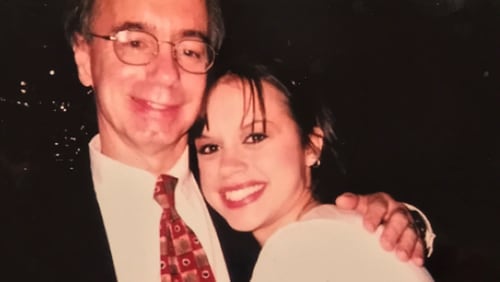
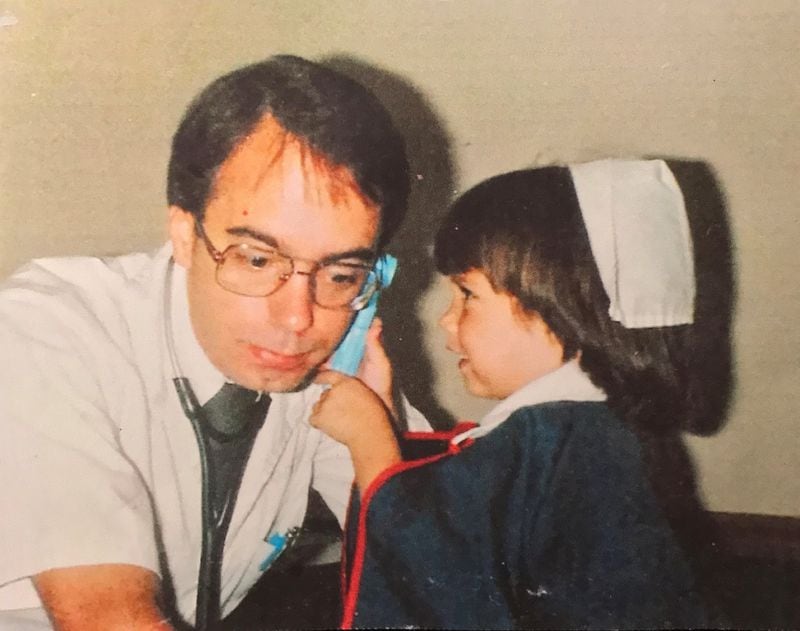
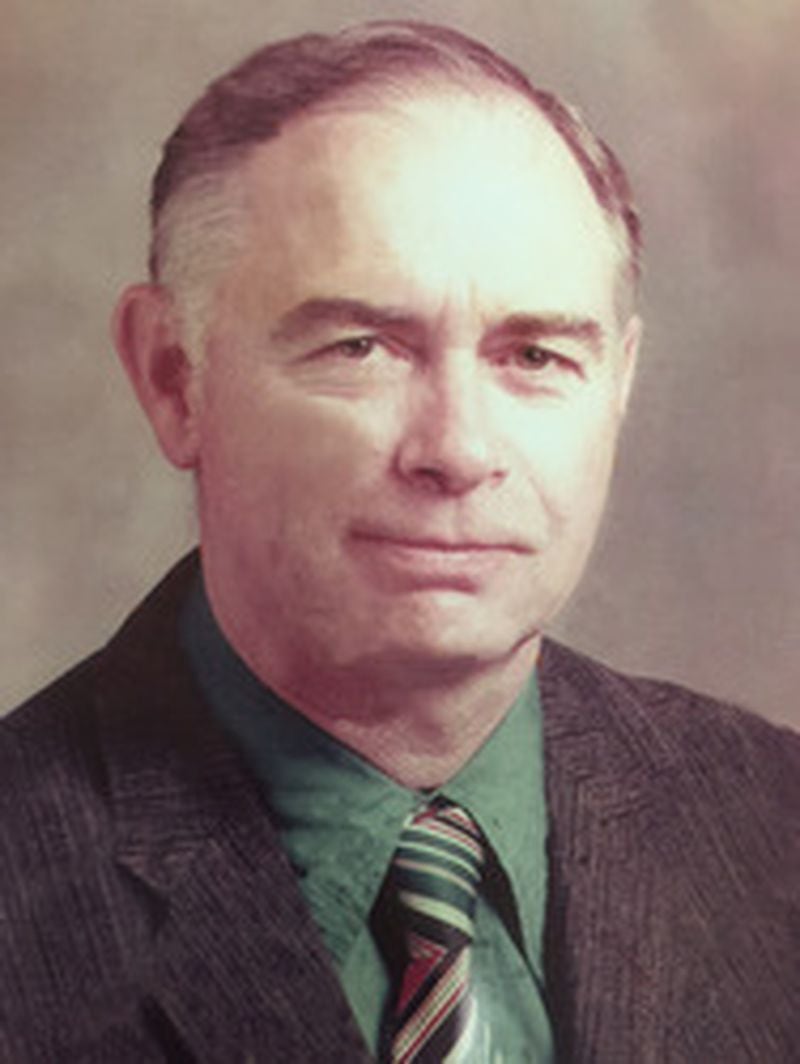
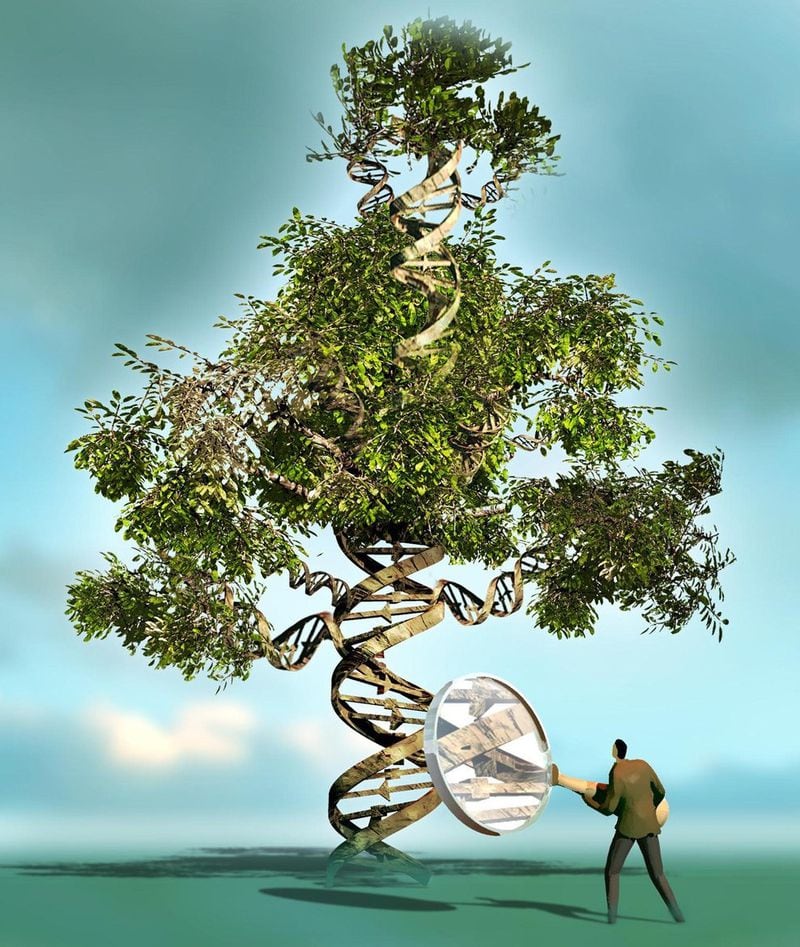
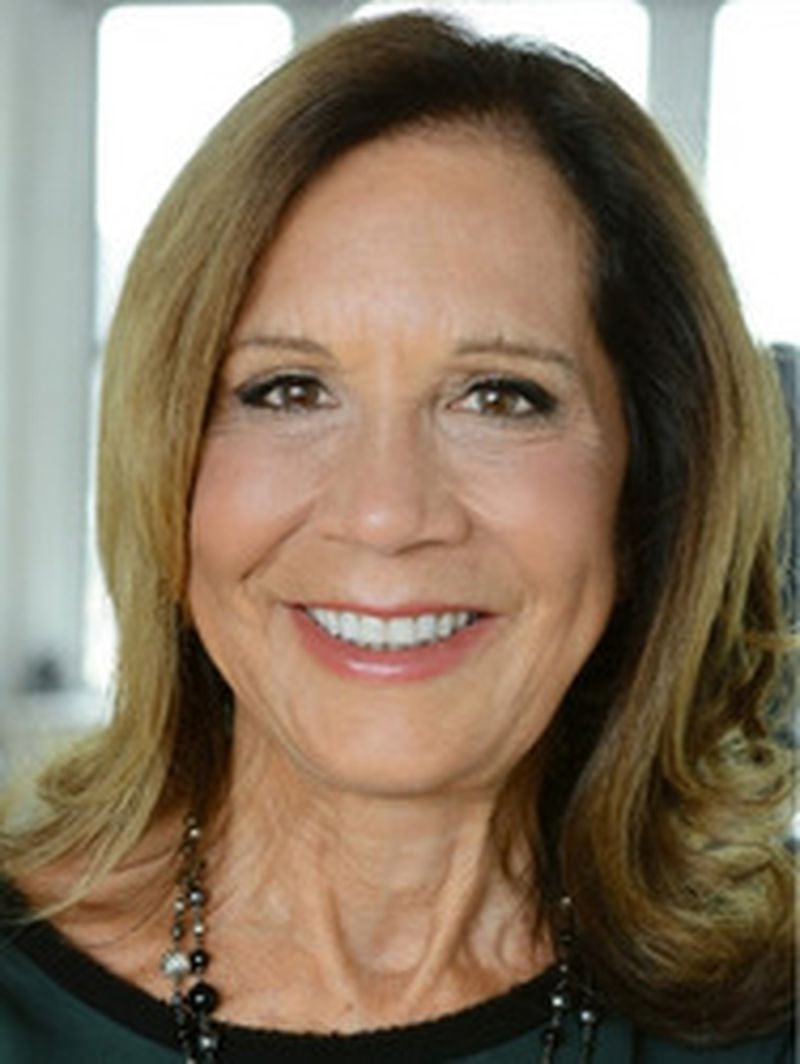

/cloudfront-us-east-1.images.arcpublishing.com/ajc/P7DYBH6TO7FEKG4SUXQQKADRXE.jpg)



